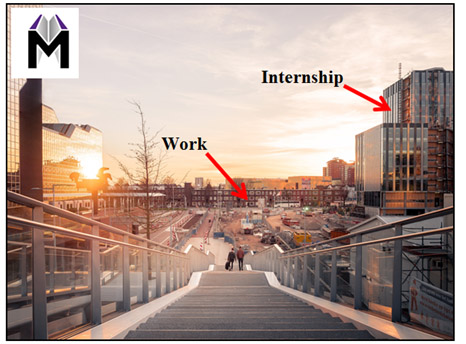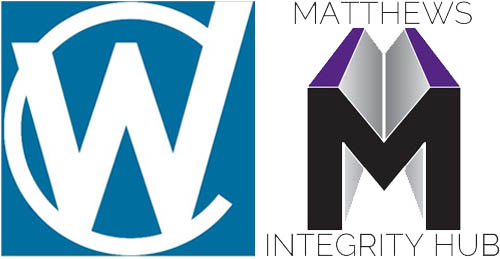Planning your degree INTERNSHIP
Getting your Internship
Many science-based degrees now include internship periods spent in industry. These range from 4-6 week holiday period employment through to full-year internships between university course years. They are invaluable for learning how the industry works and appreciating the range of possible positions within it that you may be interested in in the future.
Internships are often arranged through your university careers department but there is absolutely no bar on anyone making efforts to arrange their own internship with an employer they have approached directly. Universities will normally be supportive of this and be keen to help you along the way. This type of proactive approach to your career can pay huge dividends. If you want confirmation of the benefits read the award-winning publication ‘What colour is your parachute’, by Dick Bolles.
Once you have been successful in securing an interview for an internship position then read our articles Interviews in the world of asset integrity industry and Technical interviews the facts to give you some insights into how the procedure works.

Benefits of an asset integrity internship
Most students are so relieved to obtain an internship position that they don’t think forward to the way in which they can make it work best for them. It’s all part of the natural trepidation of being dropped into your first professional job surrounded by new people and practices. Bear in mind a couple of points:
- Some large ‘blue chip’ employers have prearranged itineraries for internees; but these are likely to be arranged by HR or training administration people. With all respect to them, they are not at the cutting edge of that company’s technical activities and so your programme may not necessarily be aligned with you taking advantage of the best technical experience available there.
- Most companies that take internees have a genuine difficulty in deciding what to do them. With the best of intention, the end result is that they are given activities that are optimised to the advantages of the employer, rather than you. There is no deliberate malice in this; it’s just the default situation that happens if the employer hasn’t got a proper plan.
You can help yourself here by coming up with your own plan. The subject of asset integrity, being a fairly wide but sharp-edged technical topic, fits this requirement nicely .Even if you don’t end up in an integrity job when your degree is finished (sometimes things work like that), you will find that the principle of running your internship to a specific plan gives you massive benefits. You will learn so much more quickly, and in greater depth, than those internees who just drift along, doing whatever odd task their employer can think up on the day.
Planning your internship programme
The first step of your internship plan is to make doubly sure it is well meshed with your Initial Professional Development (IPD) programme. You will need your IPD and CPD record to get you towards Professional Registration with an Engineering Institution as quickly as possible. This is easy to do, IPD objectives are set wide enough to be built around integrity engineering principles without any problem at all.
The precise nature of your internship plan will of course depend on which industry and employer you are in. That said, the main integrity-related sectors of oil and gas, aerospace, energy, power, nuclear, transport, and communications have sufficient common ground that it is possible to fit them to a common plan, differing only in the details of the technology and equipment involved. Here’s our advice below, set out in the form of an internship checklist
Your internship checklist

Plan to configure your internship so as you get significant involvement in all the categories below. It is best to try and experience them roughly in the order shown, although you will need to be a bit flexible. These categories will almost certainly require involvement with people in different roles in your internship company so again, you’ll need to fit in with the situation as you can best arrange it.
In most companies you may be surprised to find just how accommodating the employer will be, once they get the message that you’ve got an idea as what you’d like to be involved with. Remember that the main idea is to build up your technical knowledge of asset integrity work and project, not the resource planning or administrative procedures that surround them. There is no need to recruit an engineering graduate to do those things and there are people who can do it more cheaply than you.
Here are the categories we suggest you build into your plan:
- Use of published codes. All engineering industries have published codes and standards that influence the industry. They can cover design, operation, testing and integrity evaluation of many sorts. You need to find out what technical detail is contained in them, not just what their title is.
- Materials of construction. Materials are a central issue in asset integrity. Find out what they are in your industry and what their properties are that makes them suitable.
- Equipment design; Learn something about the design of the equipment you will be dealing with. You don’t need to become an expert, or a designer, but you need to know the principles.
- Damage tolerance of engineering components. All equipment has varying tolerance to damage. This is a core feature for the integrity of equipment in whichever industry you are in.
- Damage mechanisms. There are 60-70 well-known and documented damage mechanisms waiting to threaten the integrity of engineering equipment. You need to find out which are the most relevant to integrity problems in your industry, and understand how to find them and mitigate their effects on component integrity.
- Use analysis software. Any company dealing with asset integrity will use some types of analysis software for corrosion assessment, finite element analysis, fluid dynamics, heat transfer etc. You need to learn how to use some of these. Don’t spend all your time doing though, however tempting this may be. It’s only a small part of a big picture.
- Take a client’s brief. You need to find out how to take a client’s brief for an integrity assessment project. This is never as easy as it should be because not all clients know what they want. Once you see this in action you’ll learn a lot
- Present results to clients. Clients (normally plant owner/operators) who commission integrity assessments on their equipment differ in what they actually want to hear. You’ll see this fall into a pattern, once you’ve seen a few projects through.
- Accelerating your learning method. There are various ways to learn, some much quicker than others. As a new graduate in the industry what you are going to be serious short of is patience, so you owe it to yourself to accelerate your learning rate as much as you can. Actually doing things, making mistakes and learning from them is the quickest way to learn anything. Watching someone else doing things will teach you much less than you think.
- 10. Staying focussed. You’ve got to keep focussed on your learning programme as your internship progresses. Think about organising yourself a P2P learning approach; P2P stands for Peer-to-Peer learning, one the most time-efficient ways of learning that there is. With a bit of thought and communication with other graduates in your intern location you should be able to build this into your entire approach. See our article Peer to Peer Learning for details of how it works.
Taking a project back to University with you
Universities love it if you relieve them of the burden of finding a final-year project for you, if there is one scheduled in your course syllabus. Taking back a real-world project from your internship employer keeps your course tutor happy but more importantly keeps your competence on show with the employer. You can also build it into your IPD/CPD record.
It’s difficult to over-emphasise the importance of this route as a jump-start into a job after you have qualified. Even if you don’t end up with your internship employer your project will form a basis for discussion at technical interviews for other integrity positions. In most cases your focus on plant integrity as a project subject will carry as much weight as the actual content of the project itself, so it carries value even if it relates to a different industry.
Employers need good people
You would be truly surprised just how difficult it is for employers to get really good people who can offer technical knowledge and commitment. Saying the right things at interview and doing a good job are entirely different things, the ratio is about 7:1 we would say. For this reason the asset integrity world is stacked to the rafters with opportunity for graduates to forge well-paid careers in the industry if you can acquire the technical knowledge quickly, without messing about. All you have to do is make a special effort to make, and then take, the opportunities that are there.
Graduates: the structure and working patterns of the integrity industry are changing in your favour. See our article on Integrity industry: Freelance working and the gig economy.
Graduate training schemes
Some internships,if they go well, can lead to entry into the employer’s Graduate Training Scheme, after you have finished your degree. This can be a useful way to get a first career job but there’s a few teeny little things you just need to watch out for. Please read Graduate training schemes;debunking the MYTHS to see what they are. It could save you some disappointment further down the line.
Thank you for reading our advice on Degree Internships. We hope you find the points useful. If you have any questions then please give us a call or send an email. We answer them all.
Matthews Integrity Hub: HEAD OFFICE is OPEN EVERY DAY….0730 – 2200 Monday – Sunday…That’s correct, all week, every week, including holidays
 If we happen to miss your call, leave a message and we will call you back just as soon as we pick it up. Sorry, there’s no automated messages, call queueing, voice recognition tools or canned music. Try it and see.
If we happen to miss your call, leave a message and we will call you back just as soon as we pick it up. Sorry, there’s no automated messages, call queueing, voice recognition tools or canned music. Try it and see.
CONTACT US
Tel: 07746 771592 help@matthewsintegrity.co.uk





